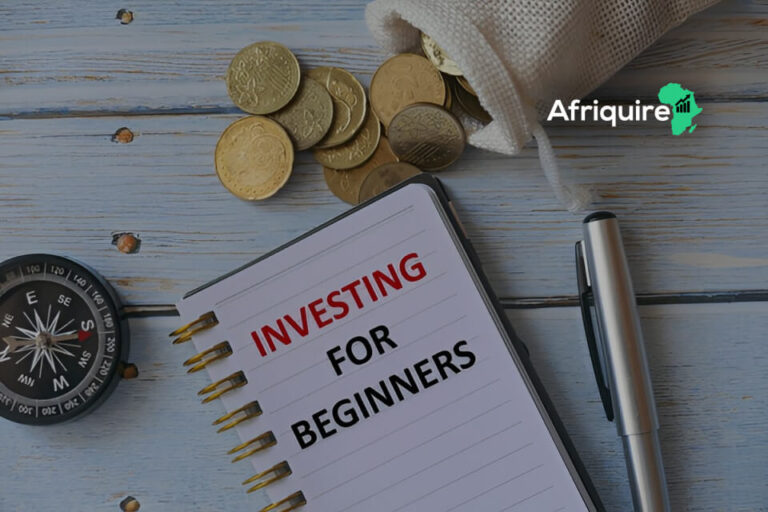Introduction
Starting a business is exciting, but it can also be very hard. Many young entrepreneurs in Africa face challenges like lack of money, small networks, and limited guidance. This is where startup accelerators come in. These special programmes can be the difference between a business that struggles and one that grows fast.
In Africa’s rich and diverse startup scene, accelerators are helping new businesses to find their way and succeed. Whether you are in Lagos, Nairobi, or Cape Town, knowing what accelerators are and how they work could be the key that unlocks your business potential.
Understanding Startup Accelerators
What Are Startup Accelerators?
Startup accelerators are programmes that help new businesses grow very quickly. They are different from normal business training or online courses because they are short, intense, and focused. Most accelerators last between three to six months. During this time, startups receive mentorship, funding, training, and access to strong entrepreneur networks.
When a startup joins an accelerator, it becomes part of a group called a cohort. In this cohort, founders learn how to improve their products, attract customers, and raise money from investors. They also gain practical knowledge like how to make a good pitch or how to structure a deal with venture capitalists. At the end of the programme, startups usually present their ideas to investors, which gives them the chance to secure more funding. Accelerators provide all the tools and advice needed to turn a small idea into a strong and growing business.
Why They Matter For Startup Growth
In Africa, running a startup is not easy. Many entrepreneurs do not have enough access to capital, business contacts, or reliable infrastructure. These challenges can stop even the best ideas from growing. Accelerators are very important because they help solve these problems.
Firstly, they give startups access to seed funding, which is the early money needed to build a product or expand.
Secondly, they connect entrepreneurs to mentors who understand the African market and can share real advice.
Most importantly, accelerators build strong entrepreneur networks. With these networks, founders meet investors, industry experts, and other startup leaders who can open doors and provide long-term support.
Accelerators also focus on teaching useful skills. For example, many founders learn how to talk to investors, how to manage their team, or how to design products that customers actually want. These lessons improve the chances of survival and success. By offering such resources, accelerators do not just help startups survive, they also help them scale and thrive.
Another reason why accelerators matter is because they often focus on solving Africa’s most pressing problems. Some accelerators specialise in fintech, healthtech, or agritech. This allows startups to create real solutions that impact millions of lives. For instance, a healthtech accelerator may support a startup building an affordable health app, while a fintech accelerator might help a company designing better payment systems.
Researching Accelerator Programs
As a young entrepreneur in Africa, you need more than just money to grow your idea into a strong company. You also need guidance, a strong network, and the right foundation to build on. This is where startup accelerators come in. However, with so many options available, how do you find the right one? The answer is research and making sure the program fits your needs.
Identifying Relevant Programs
Local And Regional Programs
The first step is to look around you. Local accelerators understand your country’s unique challenges and opportunities. They also give you direct access to experts who know your market.
For example, Antler Kenya helps technology-driven startups with investment and guidance. In Nigeria, Co-Creation Hub (CcHub) is famous for supporting businesses in areas like fintech, health, and education. These kinds of programs are very useful because they give you hands-on help to navigate your local environment.
Pan African And Global Programs
If your dream is bigger than your local market, then you can apply for pan African or even global accelerators. These programs bring startups from different countries together. They also open doors to international investors and experts. For instance, Google for Startups Accelerator Africa supports fast-growing startups that use artificial intelligence and technology solutions across the continent. By joining such programs, you gain not only money but also access to wider markets and global opportunities.
Evaluating Program Fit
Industry Focus And Specialization
Accelerators are not one-size-fits-all. Each program has its own focus. Some work mainly with fintech or health tech startups, while others are open to all industries. Choosing a program that specialises in your field is always better because the advice and resources will match your business needs. This way, you avoid wasting time with general information that might not help you grow.
Stage Of Startup Development
Another important thing to check is whether the accelerator matches your current stage. Some accelerators help early-stage startups still building their products. Others are for growth-stage startups that want to expand quickly. Picking the wrong stage can either overwhelm you with too much pressure or leave you under-supported. So always match your situation with the program’s focus.
Funding And Equity Requirements
Most accelerators provide funding, but the terms are different. Some offer grants (free money without taking ownership of your company). Others give investment capital but take equity, meaning they own a share of your business. If you want to remain in full control, you might prefer equity-free accelerators. However, accepting equity deals can also connect you to more resources and a stronger investor network. It all depends on your long-term goals.

Preparing A Strong Application
Applying to startup accelerators can be a turning point for your business, especially in Africa’s fast-growing startup scene. But since many founders apply, you need a strong application that shows why your idea stands out. Let’s break it down in a way that is simple and clear.
Crafting A Compelling Pitch Deck
Think of a pitch deck as a small storybook about your business. It explains why your startup exists and why it can succeed. Your slides should be short, simple, and easy to understand. Start with the problem you are solving, then share your solution, and explain why it is better than others. Use visuals and clear points. Remember, accelerators check many pitch decks, so yours must capture their attention in just a few minutes.
Defining Clear Problem And Solution
A strong application begins with a clear problem. Describe the issue your startup wants to solve in a way that is relatable, especially for African realities. Then, show your solution and why it works better than what people use today. Make it sharp and specific. This clarity helps accelerators quickly see the real impact your idea can create, and why it deserves support.
Highlighting Market Opportunity
After the problem and solution, explain the market. Who are your customers? How many are they? Is the number growing? Accelerators want businesses that can scale, not just serve one small group. So, show evidence that the market is big enough and expanding. You can mention data, customer surveys, or even feedback from early users. This proves your startup has the chance to grow beyond your area and maybe reach other regions or even the world.
Showcasing Team Strengths And Track Record
Ideas are important, but accelerators also focus on the people behind the idea. Present your team members and highlight their skills, experience, and passion. Have you built something before, even a small project? Share it. Do you have mentors, advisors, or partners guiding you? Mention them too. A strong and motivated team gives confidence that your startup will survive challenges and move forward.
Building Early Traction Evidence
Traction is proof that your idea is already working. It could be customers buying, people signing up, or even a pilot project that shows results. If you do not have big numbers yet, share small wins. Maybe a business agreed to test your product, or people joined your waitlist. These signals show that there is interest in what you are building. Accelerators want to see this, because it shows your startup is ready to scale faster.
Navigating The Application Process
Getting into a startup accelerator can change everything for an African entrepreneur. Whether you are just starting your business or ready to grow it bigger, accelerators provide money, mentorship, and connections that can help you succeed. But applying for these programs takes planning and focus. Here is a simple guide to help you understand the process, avoid mistakes, and follow up professionally.
Key Documents And Information Needed
Before you apply to a startup accelerator, you must gather some important documents. These show your business clearly and professionally. Here are the main things to prepare:
- Business Plan or Pitch Deck: This is a short presentation that explains what your startup does, the problem it solves, your market, your business model, and why it is better than others. Keep it simple and clear so anyone can understand.
- Proof of Traction: This shows that your idea is working and people like it. Examples include sales numbers, the number of users, or partnerships with other businesses.
- Team Information: Accelerators want to know who is running the business. Provide short profiles of the founders, their skills, and experience.
- Financial Data: Basic financial records or predictions help accelerators understand your revenue, expenses, and funding needs.
- Video Introduction: Some accelerators ask for a short video. Here, you introduce yourself and explain why your startup is important.
Having all these ready shows you are serious and organised. It also makes the application process smoother.
Common Mistakes To Avoid
Many startup founders make errors that reduce their chance of getting accepted. To improve your chances, try to avoid these mistakes:
- Being Too Vague: Avoid unclear explanations. Be specific about your business, your market, and your impact.
- Ignoring Program Fit: Not all accelerators are the same. Each focuses on different industries or stages. Target the ones that match your startup.
- Poor Presentation: Sloppy or messy documents and videos leave a bad impression. Take time to make them look professional.
- Overpromising: Do not exaggerate your achievements or plans. Be honest and realistic about your startup’s status and goals.
- Neglecting Instructions: Follow all application rules carefully. Missing details or documents can disqualify you.
Remember, accelerators get many applications. The quality of yours matters a lot.
Following Up Professionally
After you submit your application, following up in a polite and professional way is important. Here is how:
- Wait Patiently: Many programs get thousands of applications and need time to review them. Do not rush them immediately after applying.
- Send Polite Inquiries: If you have not heard back by the date they announce, send a short, polite email asking about your application. This shows interest without being pushy.
- Prepare for Interviews: If selected, study every detail of your application. Practice common questions about your business model, customers, and growth plans.
Stay Engaged: Even if you are not accepted, join the accelerator’s events or network with alumni. This helps you stay connected to the African startup ecosystem and opens future opportunities.

Maximizing Accelerator Benefits
Startup accelerators are one of the best ways to grow your business quickly. They give young companies the chance to get funding, learn from experts, meet other entrepreneurs, and build strong networks. If you want to succeed in Africa’s fast-growing startup world, joining an accelerator can open many doors. Let’s look at how to make the most of an accelerator programme.
Access To Funding Opportunities
The first big benefit of accelerators is funding. Many startups get seed capital or grants to help develop their ideas. More importantly, accelerators connect founders to venture capitalists and angel investors. Being part of a well-known accelerator means you can pitch your business directly to people who want to invest in promising startups. This is very important in Africa, where getting money for your business can be hard.
Also, many accelerators offer follow-up funding rounds. This can change the game for your growth, giving you more money to expand your operations. So, by joining an accelerator, you are not just getting cash; you are also getting a chance to meet people who can keep investing in your business.
Mentorship And Expert Guidance
Another big advantage of accelerators is mentorship. Mentors are experienced entrepreneurs and experts who give advice on how to build your business. They can help you understand difficult areas like venture capital deals or building good relationships with investors.
Mentors also help you avoid common mistakes and improve your product, marketing, and business strategy. In Africa, startups often face challenges like poor infrastructure or strict regulations. So having mentors to guide you through these obstacles is extremely valuable.
Networking With Founders And Investors
Accelerators also help you meet other founders and investors. Being in a group with startups from different industries like fintech, agritech, or healthtech allows you to learn from others’ experiences. You can also share resources and ideas, which can help your business grow faster.
Networking with investors is also useful because you learn what they look for in a startup. This knowledge can help you attract attention and get more funding. Strong networks can lead to partnerships, collaborations, or even future funding rounds. In Africa, building good connections is very important for startup success.
Leveraging Alumni Communities
After finishing an accelerator programme, you do not leave alone. Alumni communities connect past participants to ongoing support, resources, and opportunities. Many successful alumni become mentors or even investors for new startups.
By staying involved in the alumni community, you can get advice, find job opportunities, or attend exclusive events. This support system is a big advantage because it helps you keep growing and solving problems. Alumni networks are a long-term asset for any African startup.
Planning Beyond The Accelerator
Joining a startup accelerator is just the beginning of your entrepreneurial journey. Step two is gaining many useful lessons, making important connections, and sometimes even getting funding. These things help set you up for success. However, the real test comes after the accelerator ends. Planning beyond the accelerator is very important if you want your business to grow, build strong networks, and scale successfully in Africa’s startup ecosystem.
Setting Post Program Goals
When your accelerator programme finishes, it is time to plan your next steps carefully. Setting goals after the programme helps keep your startup moving forward. These goals could be improving your product, getting more customers, or expanding into new markets. It is important to stay focused and follow the strategies you learned during the accelerator.
For example, you could set a goal to increase your monthly sales by 30% or to start selling in a new country within six months. Goals should be realistic but still challenging. They give your startup direction and encourage steady growth.
Also, when you set milestones, you can measure your progress and change your plans if something is not working. Goal setting is not just about success; it is about creating a clear roadmap for your startup’s future.
Maintaining Investor Relationships
While in an accelerator, you meet many investors. But your work does not stop when the programme ends. Keeping strong relationships with investors is very important for long-term success. After the programme, send regular updates about your progress and be honest about your challenges and achievements.
Good communication builds trust and may even lead to more investment or introductions to new partners. Investors want to see that you value their support and are serious about growing your business. Remember, many startups fail, but those who maintain investor relationships often have a better chance of succeeding. Staying connected also gives you access to advice and mentorship even after the accelerator has ended.
Scaling With New Partnerships
Accelerators often connect you with potential partners, such as suppliers, distributors, and technology providers. After the programme, work on strengthening these partnerships and look for new ones. Strong collaborations help your startup grow faster. They give you access to new markets, allow you to share knowledge, and even reduce costs.
For instance, a partnership with a local distributor can help you reach customers in rural areas where selling directly is hard. Similarly, teaming up with technology partners can improve your product and customer service. Growing a business is rarely a solo journey; it requires a network of trusted partners. Expanding your partnerships plays a big role in making your startup sustainable and successful in Africa’s growing startup ecosystem.

Frequently Asked Questions (FAQs)
1. How do I find the right accelerator for my startup?
Look for programmes focused on your industry and stage, check their track record, and consider location and network opportunities.
2. Do startups have to give equity to join accelerators?
Some accelerators take small equity stakes, but many, especially in Africa, offer equity-free support.
3. Can I apply to multiple accelerators at the same time?
Yes, you can apply to several programmes, but be sure you can commit if accepted.
4. What do startups get from accelerators besides money?
Besides funding, accelerators offer mentoring, access to investors, networking, and business development support.
5. Will joining an accelerator guarantee funding?
Not always, but it increases your chances by improving your business and connecting you with investors.
Conclusion
Startup accelerators play a vital role in building thriving businesses within African startup ecosystems. They provide young entrepreneurs with crucial mentorship, funding, and networks that help turn ideas into successful companies. Understanding how to leverage these programmes can boost your chances of growth and success.
Plus, by exploring the role of business incubators in African startup success, you gain even more tools to navigate the complex journey of entrepreneurship. Whether you dream of tech, fintech, or agribusiness, startup accelerators are the stepping stones that can take your business to the next level.



